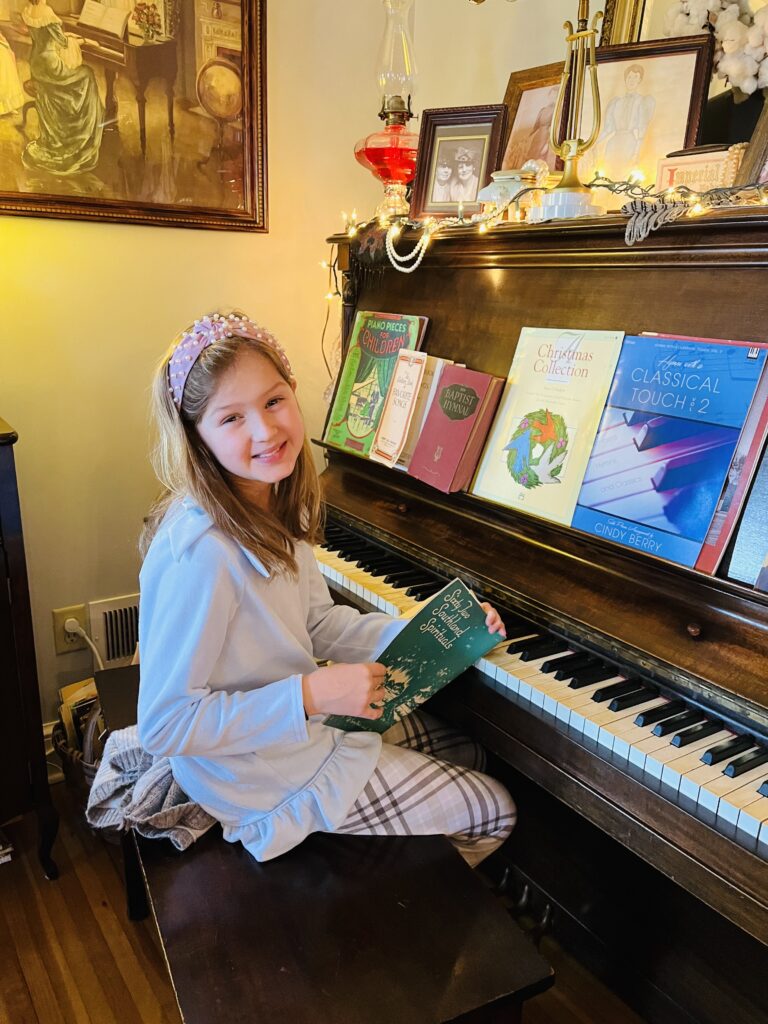
Summer is a time for sunshine, freedom, and a break from the regular grind of the school year. But if your child is taking music lessons, you may already be bracing yourself for the annual tug-of-war over summer practice. The last thing any parent wants is to spend their summer nagging, pleading, or bribing their child to sit at the piano, do their vocal exercises, or get out their violin.
At Piano Central Studios, we believe that music should be a joyful part of your family’s rhythm, not a battleground. That’s why we’re sharing our best tips to help you create a summer music routine that feels natural, lighthearted, and yes, even fun!
Shift the Mindset: From Obligation to Opportunity
Summer gives us a chance to reframe how we think about practice. During the school year, it’s easy for music practice to feel like just another item on a long to-do list. But summer opens the door to a more relaxed, curiosity-driven approach.
Instead of telling your child they “have to” practice, help them see that they get to play music. They get to explore new songs, try out fun rhythms, and build a skill that’s totally theirs. Making that shift in perspective is the first step toward music lessons without practice battles.
Our teachers at PCS wholeheartedly endorse this approach, by the way, and will work to find music and create assignments that are interesting, enjoyable, and chosen specifically for each student.
Build a Simple Summer Music Routine
A consistent routine is the secret ingredient to making summer practice feel effortless. Without the structure of the school day, time can slip away quickly. That’s why it helps to carve out a predictable time for music every day.
This doesn’t have to be strict. Think of it more as a gentle rhythm. Maybe it’s 15 minutes after breakfast, or right before heading to the pool. Keeping the session short and sweet makes it easy to follow through and removes resistance.
You might even try a weekly calendar where your child gets to choose their own practice times in advance and cross through the days they practice. Giving them that little bit of ownership can be surprisingly powerful.
Create a Fun Practice Environment
Kids thrive when learning feels playful. Set the stage for a positive experience by making your practice space warm, inviting, and inspiring. A few simple touches like a cheerful lamp, a colorful practice chart, or even a small reward jar can go a long way.
You can also incorporate games into practice sessions. At Piano Central Studios, our teachers love sharing musical games or apps that reinforce skills like note reading and rhythm. Ask your teacher for suggestions that can bring extra energy into your child’s routine.
Set Goals, Not Demands
Instead of saying, “Go practice now,” try working together to set a few small goals each week. That could be learning the first half of a new song, mastering a tricky hand position, or playing a favorite piece with no mistakes.
Make sure the goals feel achievable and exciting. Then celebrate progress, no matter how small. Progress stickers, a high-five, or a family “mini concert” on Friday evenings can turn practice into something your child looks forward to.
Let the Music Be Their Own
Sometimes kids resist practice because they feel disconnected from the music itself. Summer is the perfect time to let your child explore songs they genuinely enjoy.
Ask your Piano Central Studios teacher if your child can work on a favorite song, movie theme, or video game melody in addition to their regular assignments. Giving them a say in what they’re playing helps build a lasting love of music and reduces pushback.
When kids feel like the music belongs to them, they become more motivated to sit down at the piano. And when that happens, you’ll find yourself doing less nagging and more cheering.
Keep Lessons Light and Inspiring
Summer music lessons are a great opportunity to try something new. For example, if your child has been learning piano for a while, this might be the season to explore songwriting, improvisation, or duets. These activities often spark renewed enthusiasm and offer new ways to practice that don’t feel like “work.”
Our teachers go the extra mile to keep summer lessons engaging and light-hearted. They incorporate games, musical challenges, and mini-goals that make learning feel like play. Whether it’s clapping out rhythms with colorful instruments or improvising a silly tune together, our students leave lessons smiling and eager to come back.
We also offer fun, school-wide summer incentives to keep motivation high. Kids love tracking their progress on our colorful practice charts or linking up paper practice chains that stretch across the studio walls. These simple tools turn practice into a visual celebration of effort, and they create a real sense of excitement and accomplishment.
Be Their Cheerleader, Not Their Coach
As a parent, your encouragement means everything. Instead of correcting or managing their practice, focus on noticing what they’re doing well. Celebrate the effort more than the outcome.
You might say, “I love how focused you were today,” or “That song is really starting to sound great.” These kinds of comments build confidence and help your child associate music with positive feelings.
Of course, it’s okay to help them stay on track, but when your role is more cheerleader than coach, practice becomes a shared joy instead of a source of stress.
End the Summer Strong
When August rolls around, you’ll be amazed at the progress your child can make with just a few minutes of daily practice. More importantly, they’ll finish the summer feeling proud of their growth and excited to continue their musical journey on into a new school year.
By creating a simple summer music routine, encouraging ownership, and bringing a sense of fun into practice time, you’ll enjoy music lessons without practice battles. Your home will be filled with more music, more confidence, and fewer arguments. And isn’t that what summer should be about?
